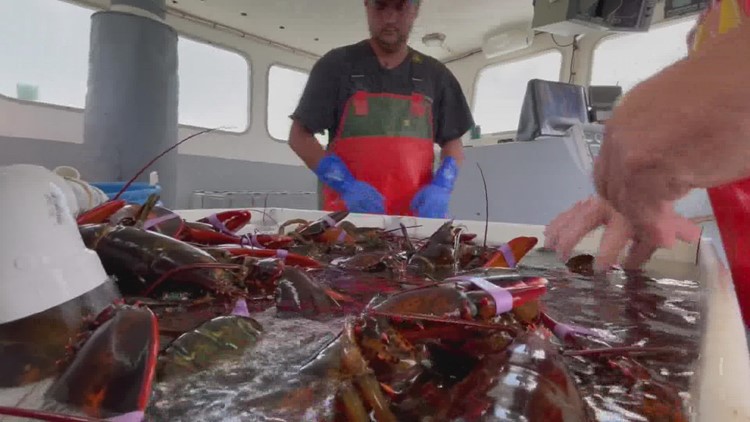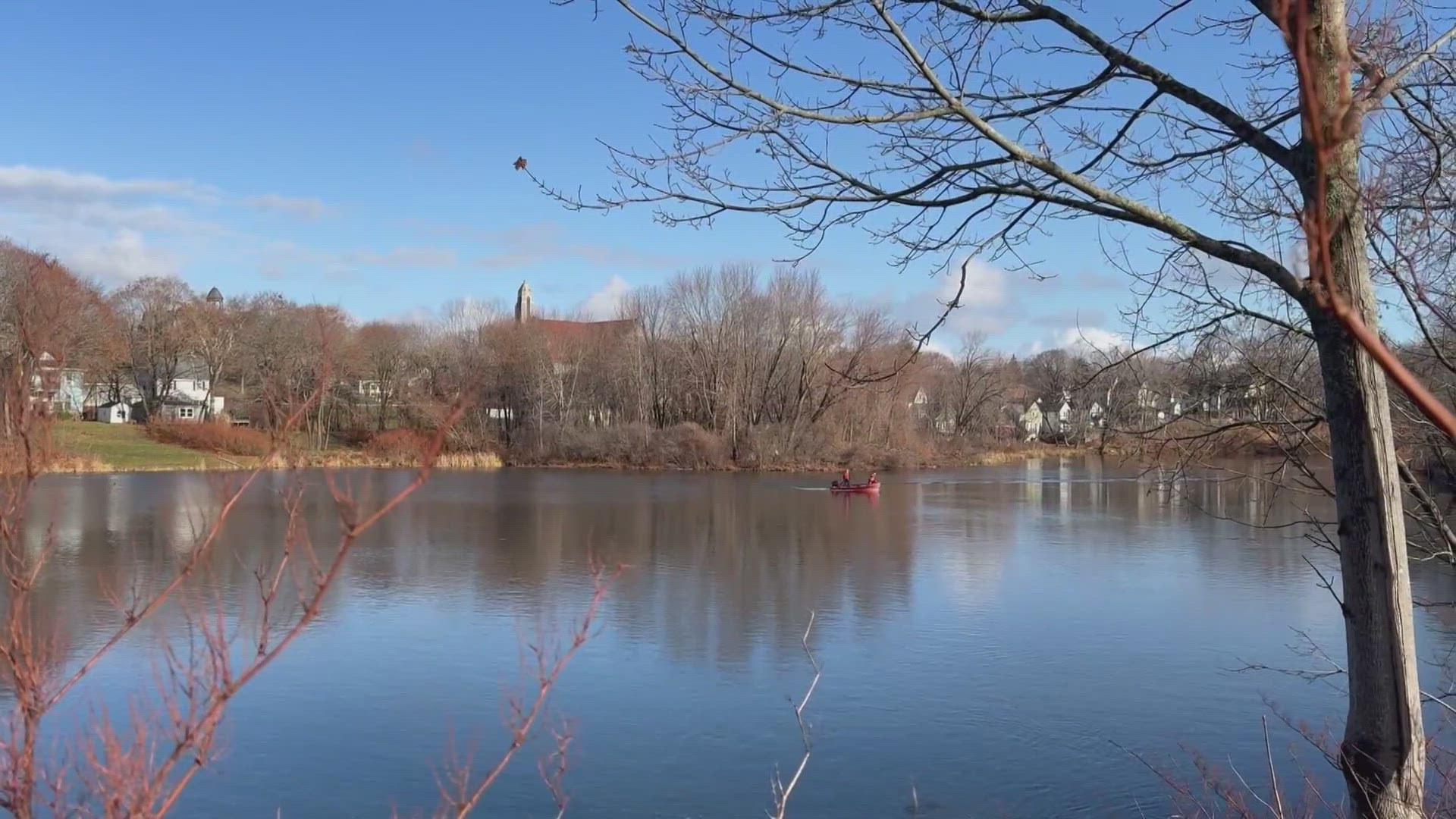MAINE, USA — Lobster is synonymous with Maine, but after reading the news that Alaska canceled its snow crab season last week, some people might have questions about the potential impacts on lobsters in the Gulf of Maine.
The Alaska Department of Fish and Game canceled the snow crab season after a catastrophic population crash in the crustaceans. And this came after the red king crab season was canceled for the second year in a row, according to NBC News.
So does the cancelation of those harvests have implications for lobster harvests in Maine? Not directly. But it's something to keep an eye on as temperatures spike in the Gulf of Maine.
While scientists continue to examine the cause of the snow crab population collapse, it comes after a stretch of record-breaking warmth in Bering Sea waters that spiked in 2019.

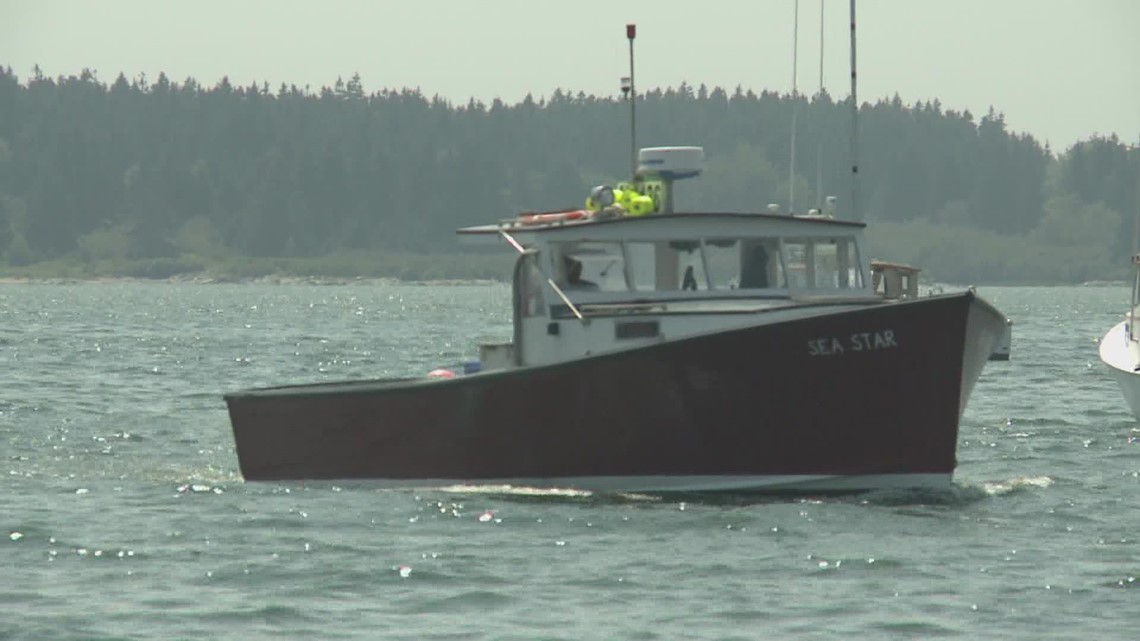
Lobster fishers
Virginia Olsen is a lobster fisher and recording secretary for both Lobster 207 and Local 207. After speaking with sellers from Lobster 207, she told NEWS CENTER Maine the snow crab season cancelation may not have any impact on the demand for lobsters harvested in this state.
They've been keeping an eye on the situation in Alaska.
"It can change things pretty quickly, but as of yet, there hasn't been any move they've noticed. But we are watching that very closely," Olsen said.
Things are very much day-by-day for lobster fishers right now, according to Olsen.
But the snow crab season cancelation may not be on the radar for some Maine lobster fishers due to ongoing litigation over guidelines regarding Atlantic right whales, she said.

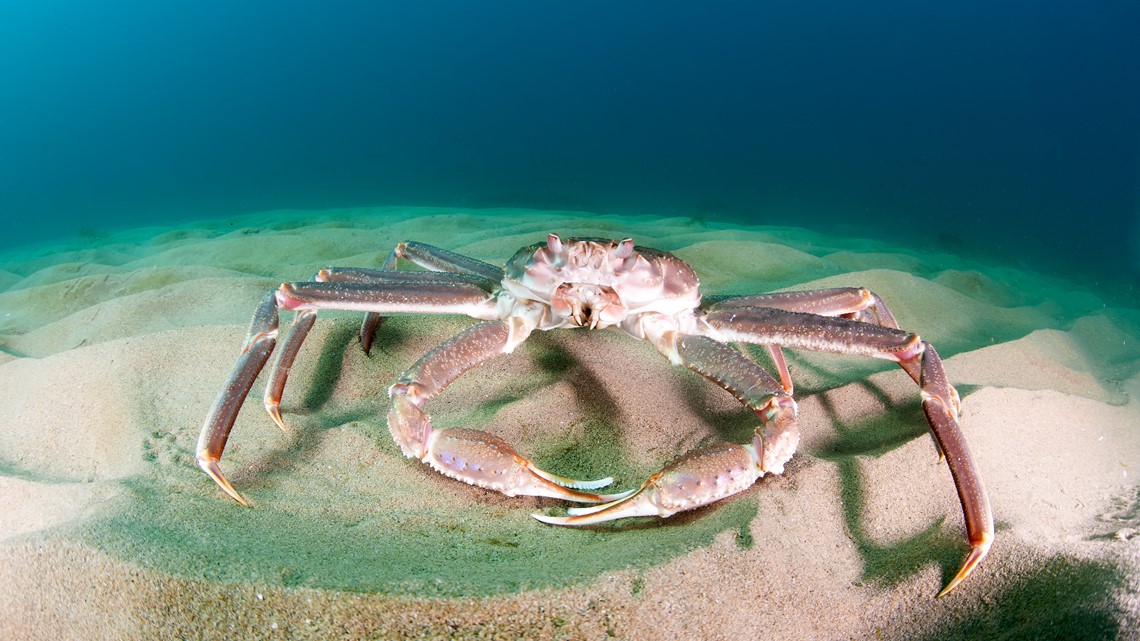
Snow crabs vs. Maine lobsters
Dr. Richard Wahle is a professor and director of the Lobster Institute at the University of Maine. He told NEWS CENTER Maine that while snow crabs and lobsters in Maine are both relatively cold water species, they have different thermal requirements.
Crabs are a colder water species, the professor said. Those harvesting snow crabs tend to fish in waters deeper than 160 feet. Snow crabs don't do as well in warmer waters, whereas lobsters clearly do. And the geographic range of lobsters reflects that, typically reaching further south than that of the snow crab.
While snow crabs are found in Alaska, Wahle said they're also in the Gulf of St. Lawrence, southern Greenland, and even Japan.
“It’s a widely distributed species whereas the American lobster is rather unique to the northeast U.S. and Atlantic Canada,” he said.
Researchers in Maine are looking into the impacts of warming water temperatures on lobster larvae. Wahle is one of those researchers. He said it's not just water temperatures changing in the Gulf of Maine but nutrients as well. The abundance and quality of food for lobster larvae have changed.
"What’s been happening in the Gulf of Maine is a dramatic change in the waters and circulation that influence not only the temperature but the nutrient quality of the water," the professor said.
But, compared to lobsters, snow crabs have a narrower temperature tolerance.
"They cannot deal with the kinds of warm temperatures we see at the surface in the summer. In most cases, lobsters can," Wahle said.
So as temperatures warm in the Bering Sea, the habitat available to snow crabs has shrunk. They're crowded into a smaller area of real estate, according to Wahle. And since snow crabs have a greater propensity to cannibalize younger ages, that acts as a double whammy to its numbers. Lobsters don't have that same propensity to cannibalize in nature.

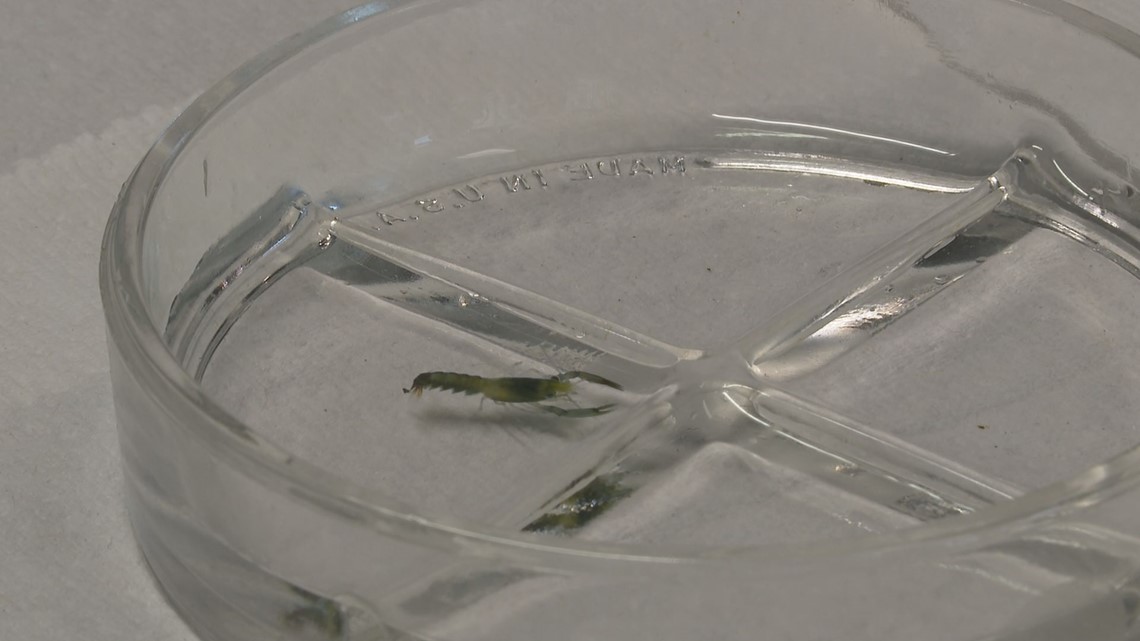
Decline
Wahle said Maine's lobster population remains healthy, but researchers have been seeing declines in lobster larvae settlement over the past 10 to 15 years. They've monitored larvae settlement from Rhode Island to Canada in lobster nursery grounds.
And it's not just the warmer temperatures but also the changing quality of food lobster larvae depend on as they grow that are changing.
So while Maine's lobster population remains healthy, Wahle said researchers are seeing the consequences of a changing climate. He described lobster fishery conditions between Maine and southern New England as a "tale of two cities."
The professor said in the late 90s and early 2000s in southern New England, there were increasing effects of ocean heat waves. The Long Island Sound saw a catastrophic die-off of lobsters as a consequence of an extremely warm summer. Since then, researchers have seen the effects of shell disease in lobsters that took a toll, leading to heightened mortality.
"The fishery in southern New England has all but collapsed," he said. "Shell disease is directly linked to warming temperatures."

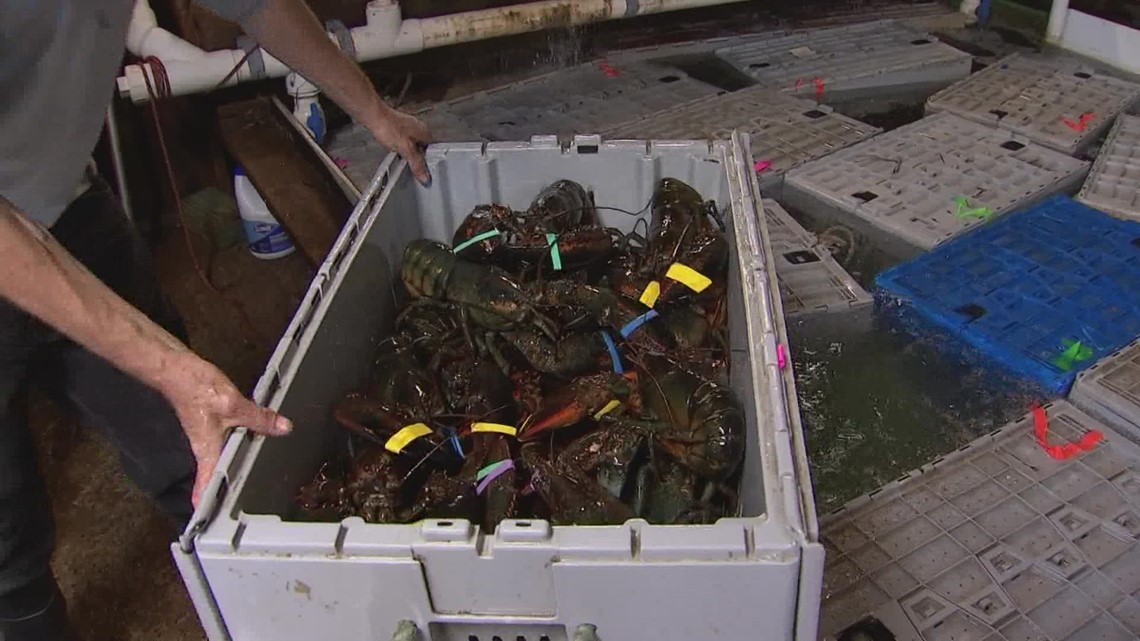
Expansion
By comparison, in the Gulf of Maine, warming temperatures have created some positive effects for the lobster, opening up new territory that was historically on the cold side of the lobster comfort zone.
Wahle said lobster larvae settlement was promoted by warming temperatures in the eastern part of the Gulf of Maine. It launched a population explosion for 15 to 20 years that peaked around 2016 in Maine and southern Nova Scotia.
As water temperatures warm, those favorable lobster conditions are a wave cresting northward and might be starting to pass through the Gulf of Maine.
"Yeah, for now, [the population] is healthy. But we seem to have crested," the professor said.
From near-term forecasts researchers are looking at, Maine isn't seeing catastrophic declines like in Alaska. Those forecasts give lobster researchers a six or seven-year outlook horizon on the larvae.
"We don't see any serious signs for concern over the short term," he said. "But again, we are also working on a decay scale forecast where we may be seeing some conditions, especially in the southwest part of the Gulf of Maine, deteriorating somewhat."
Still, the oceanography of the Gulf of Maine is that those cold conditions that lobsters favor will continue to persist well past 2050.
"It's not as if in the next few decades that we'll see dire effects, at least by these forecasts. But you've got to take any forecasts with a grain of salt," Wahle said.

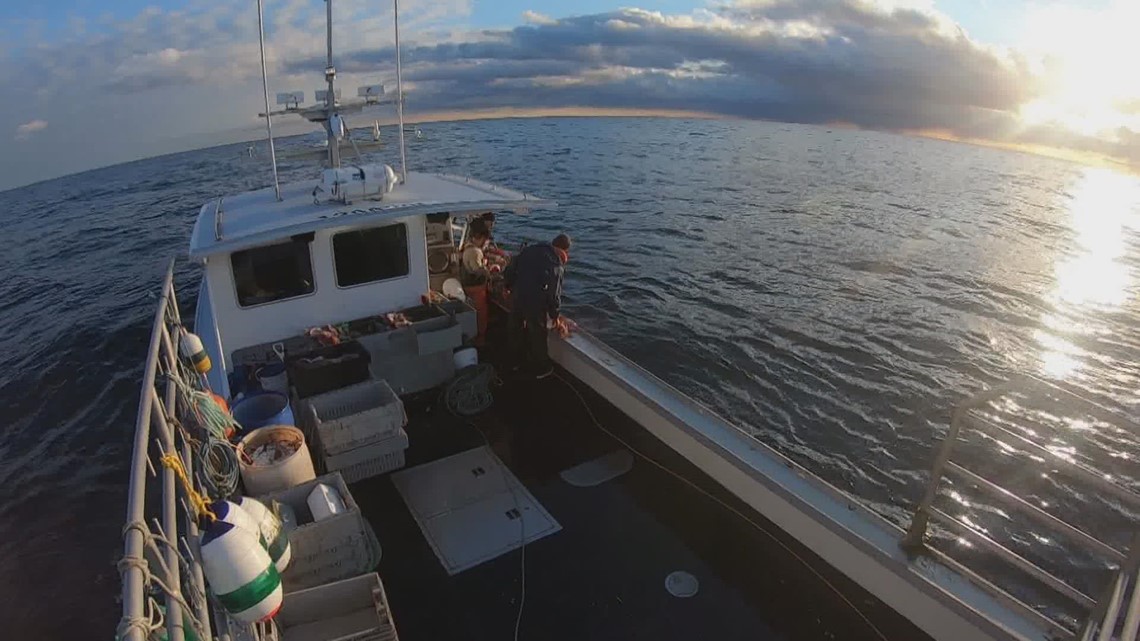
The future
So should Mainers considering the future of lobster harvests keep an eye on the situation in Alaska?
"To the extent that these effects are from a changing climate, we should definitely pay attention," Wahle said.
Some responses to changing environments for marine organisms are very species-specific. But other reactions are very predictable for almost any marine organism.
"This is definitely relevant to our world and maybe more closely than we think," Wahle added.
There is a snow crab fishery in Atlantic Canada, and Wahle said he's interested in seeing how the warming layer increases up there in the future.


